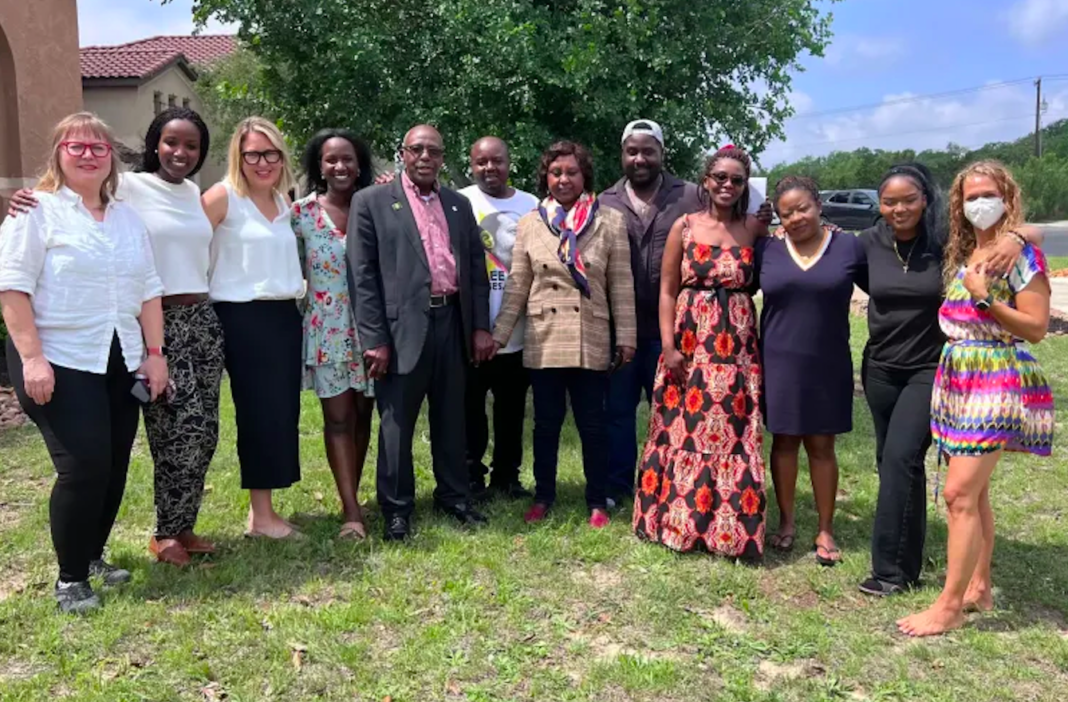The campaign to release Paul Rusesabagina, the Rwandan humanitarian whose heroic story inspired the film “Hotel Rwanda,” was marked by a blend of relentless advocacy, strategic alliances, and the strength of a united family. It encompassed a vast network of people, including legal representatives, human rights organizations, international actors, and members of Rusesabagina’s family, who were all committed to achieving justice for Rusesabagina.
Carine Kanimba, Rusesabagina’s adopted daughter, became a central figure in the campaign. Her visibility and eloquence were a testament to her strength, determination, and passion. But beyond these qualities, there were aspects of Carine’s identity that made her a difficult target for the propagandists of the Rwandan Government. Being a Tutsi orphan of the genocide, she was shielded from the traditional means of attack (genocide and genocidal ideology) that the Kagame’s supporters usually employed.
Furthermore, Rusesabagina’s background as a Hutu man who married a Tutsi, saved many Tutsis during the genocide, and adopted two Tutsi orphans created a sympathetic image of him, both internationally and among Rwandans. This made it challenging for the Rwandan Patriotic Front (RPF) and its propagandists to attack him using their standard strategies. However, some Tutsi extremists like Tom Ndahiro attempted to do so unsuccessfully. Some even questioned Carine on how she could defend a Hutu while being a Tutsi and an orphan of the genocide.
The campaign’s international efforts were marked by strategic meetings and media appearances to keep Rusesabagina in the public’s eye. Carine’s eloquence, along with her sister Anaise Kanimba, in Western media played a crucial role. Meetings with American leaders and various parliaments helped gain sympathy from lawmakers and increased pressure on decision-makers.
One notable turning point was the smart exploitation of the Pegasus Case by Carine and the mishap of the then Rwandan Minister of Justice, Johnston Busingye, on Al Jazeera. Busingye made a significant mistake by admitting live on Al Jazeera that the government of Rwanda paid for the flight used in the kidnapping of Rusesabagina and accidentally providing a recording of his meeting with lawyers from a London Public Relations Firm. This gave a boost to the momentum of the #FreeRusesabagina team.
In Belgium, Lys and Diane Rusesabagina were active on the front lines, engaging with the exiled Rwandan community and giving interviews to popular YouTube channels like Ikondera Libre. Their efforts contributed to the struggle by showing Rwandans that Rusesabagina was one of their own, not just a hero of the West and Hollywood. They also exposed the poor treatment their father received in prison, putting pressure on the Kigali authorities to improve Rusesabagina’s detention conditions.
Press conferences featuring Rusesabagina’s sons Roger and Tresor, his wife Taciana, and other family members, alongside legal team members like Kate Gibson and friends from organizations such as the Lantos Foundation, Robert F. Kennedy Human Rights, the Clooney Foundation for Justice, and the American Bar Association Center for Human Rights, demonstrated the strength of a united family and loyal friends. The dynamic presence of Kitty Kurth added to this powerful display.
Lawsuits against the Rwandan government added extra pressure. By attracting sympathy and engaging elected officials such as senators, allowed them to exert pressure on the U.S. State Department. Notable initiatives also included the official T-shirt launch of the Represent campaign by Hollywood stars like Don Cheadle, Scarlett Johansson, Mark Ruffalo, Chris Evans, Doc Rivers, and many others. The “Bring them Home” campaign further urged U.S. Government action to bring home wrongfully detained individuals.
The strategy of Rusesabagina’s family was multifaceted and effective. It not only built a strong legal defense for Rusesabagina but created a wave of public sympathy and political pressure. By engaging with both grassroots movements and high-level political leaders, they managed to draw global attention to Rusesabagina’s plight and to the broader issues of human rights in Rwanda. The campaign served as a shining example of what a united family, determined legal team, and global network of supporters could achieve in the face of grave injustice.





























































